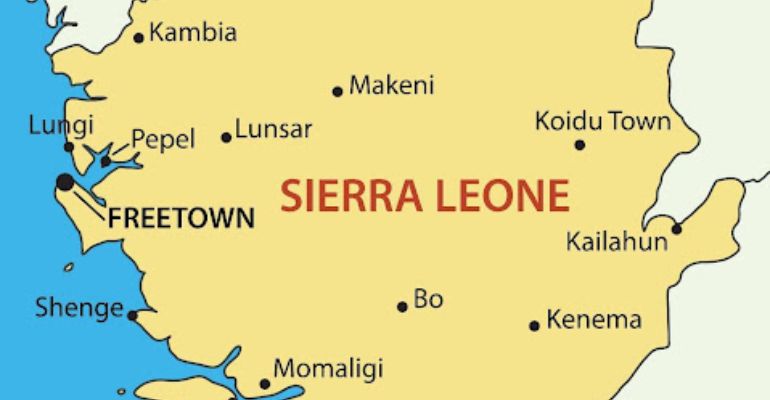2019/03/PR.
16th October, 2019.
ACEYE PRESS RELEASE.
Violent extremism has now become a great threat for several countries in West Africa. So far, the Economic Community of West Africa States (ECOWAS) has struggled to deal with the issue. This struggle is as a result of the nature of the ever-changing security threats in the region.
In spite of the several challenges it faces, ECOWAS continues to find new ways of combating the menace. On 14th September 2019, West African leaders met in the capital of Burkina Faso for a summit with the purpose of reaching a consensus on how to tackle the ever-increasing problem of jihadist violence. The best option they came up with was to mobilize one billion dollars to combat this problem.
A question that arouses from this development is: how different and sustainable is this plan considering the G5 Sahel?
With this, the Africa Centre for Entrepreneurship and Youth Empowerment (ACEYE) has conducted a
research which suggests the need for Leaders of the Economic Community of West Africa States to tackle the grievances that fuel jihadism like unemployment rather than concentrating on the effects-of jihadism with the proposed 1billion Dollars.
In dealing with the peril years back, there have been several counterterrorism interventions initiated by the United States of America (USA), Africa Union (AU) and ECOWAS worth millions of Dollars. For example, in 2002, the US introduced the Pan-Sahel Initiative (PSI), to improve the intelligence gathering and boarder security of the Sahelian states. The PSI which was later transformed into a program that combines both military and non-military techniques called the Trans-Saharan Counterterrorism Initiative (TSCTI), Over a period of six years, this initiative received $500 million from the US government to coordinate the economic, political and military engagement between the Sahel-Saharan countries. The TSCTI was later replaced by the African Command (AFRICOM). Despite this progress, this organization was crammed with numerous difficulties which did not allow it to attain its objective of counterterrorism as planned.
The AU is noted to have initiated several counterterrorism programmes such as the AU Constitutive Act of
Article 4(o) which underscores the need for the ‘respect of the sanctity of human life, the eradication of acts of terrorism and subversive activities, and the condemnation and rejection of impunity and political assassination’.
Bringing the limelight on ECOWAS, Article 3(d) of its Conflict Prevention, Management and Resolution, Peacekeeping and Security Mechanism (ECOWAS, 1999), as well as Article 24 of 2001 Protocol on Good Governance (ECOWAS, 2001) made provisions, among other measures to combat terrorism in West Africa. They also adopted a Counterterrorism Strategy and Implementation Plan in 2013 and established other agencies.
Although large-scale wars and interstate conflicts have reduced drastically, there are concerns that pockets of violence being perpetrated by jihadist groups in countries like Nigeria and Mali may worsen the security situation of the region.
Although ‘there are no statistical correlations between levels of poverty and the incidence of terrorist attacks in particular countries’ as suggested by Kofi Annan, ’failed development and poverty create inequalities that underpin many of the grievances that drive terrorism’.
Thus, it is important for ECOWAS to revisit the pitfalls that undermined the several protocols it initiated.
Notable among these were lack of member states’ commitment, corruption, financial shortfall, antagonism among members, a lack of cooperation between ECOWAS and the AU and the limited role of the grassroots and civil society groups – a crucial role in a nation’s risk of political instability because such insecure environments, then, become breeding grounds for terrorism. Both the 2006 U.N. Global Counter-terrorism Strategy and the 2015 plan of Action to Prevent Violent Extremism attests to the fact that poverty and youth unemployment make the circulation of violent extremism effortless. Violent extremist organizations tend to be attractive sources of income, and countries that fail to create employment opportunities for young people witness more incidents perpetrated by these youths.
As a counter-action to this trend, the U.N. plan prescribes youth empowerment through involvement in decision-making, mentorship programs, and entrepreneurial support, as well as improved education, skills development, and employment facilitation.
There is the need for West African leaders to implement these measures in order to mitigate the dangers of terrorism. The West African region has been a breeding ground of political instability and insecurity since independence from colonial rule. Per the United States Institute of Peace special report, most of the terrorism groups gain the impetus from disaffected, unemployed, and destitute youth; it was indicated in this report that the median age of Boko Haram members is 30 years old.
West Africa’s 16 countries have large and rapidly growing youth populations. Over 50% of the population in sub-Saharan Africa is between 18 and 35. According to CIA World Fact book about 56 percent of Ghana’s population is below age 25 and in Nigeria and Mali, this figure rises to about 62 percent and 66 percent respectively. Niger’s under-25 population constitutes a staggering 68 percent. Large proportions of these populations are unemployed and struggle to make ends meet. Across West Africa, national economies are about 70 percent agrarian, with a majority of farmers operating only at subsistence levels.
Unemployed youth in West Africa are drawn often to violent extremism because unemployment and poverty tends to sour the relationship between young people and their national governments. Such dissatisfied youth may choose to engage in terrorism in order to communicate their frustration. This is the case in northern Mali, where the uprising of 2012, the fourth since independence in 1960, emerged from widespread discontent with that part of the country being impoverished and oppressed. that ignited earlier rebellions. While tensions now seem to have decreased, there are continuing terrorist activities. Processes for resolving the concerns of the people are sluggish, while terrorist networks and resource sharing are flourishing with foreign groups like AQIM. Addressing this issue will involve cooperation between national governments, international organizations and partners in development, and private domestic sectors.
Human security is a necessary component of strategies to counter-terrorism. It needs the establishment of the necessary political, social, ecological, economic, military and cultural structures for the survival and dignity of people. Poverty and unemployment need to be resolved in order to ensure economic security. Counter-terrorism efforts typically involve armed combat in West Africa. Such combat is more reactive than preventive. On the other hand, initiatives like job creation could stop the growth of terror outfits before they become a threat.
Bridging the various countries development gaps will help reduce the anger and frustration among young people living in impoverished regions. There are notable differences between a deprived north and a more prosperous south in Ghana, Nigeria, and Mali. This problem could be solved by reviving the extinct local industries and channeling direct foreign investment into these regions. Ghana for example had a flourishing textile industry, but in the midst of declining profits, some companies have recently been shut down. These sectors could be revived with the right policies in place to absorb some of the unemployed youth.
Once more jobs are available, there must be preparation for young people to take up employment. Education curricula should be adapted to regional and labor market needs. This will go a long way to curb and prevent instances where 50% of university graduates in Africa are unemployed, partially because most of them lack preparation, organization and technological skills after graduation according to Africa Centre for Economic Transformation.
Left unaddressed, youth unemployment lead to disaffection and possible radicalization in West Africa. Terrorism poses a serious threat to international peace and security. Hence, by adhering to these steps would help young people find jobs and help mitigate the danger.
For more information about the research, email info@aceye.org
CC:
All media houses
